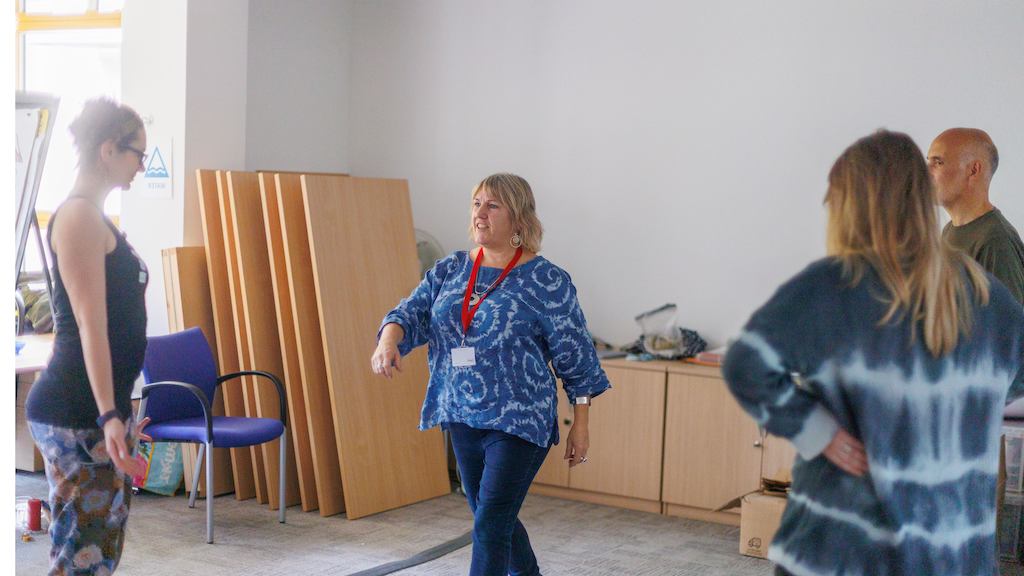The how, where and when of flexible working at Phoenix

We know that flexible working is one of the most important things older workers consider when applying for a new role and that it encourages them to stay in their current role.
Maximising flexibility
Long-term savings and retirement business, Phoenix Group, is taking flexibility at work to its limits – for the benefit of the business and all its employees, including older colleagues.
Top tips:
- Advertising vacancies with flexible work options increases applications, particularly from older people
- Offer career breaks to everyone, regardless of age or lifestage
- Support managers to have good conversations so that flexibility works for the team and the individual
“It was the pandemic and the move to hybrid working that triggered our thinking about even more flexible working,” says Claire Cook, Head of Transformation (Phoenix Flex). “We saw that colleagues wanted more flexibility about where they worked, and we thought why not consider also more flexibility about when they work, and how?”
This led to the creation of the Phoenix Flex project, which Claire leads.
“We value people over places and we prize performance over hours spent,” says Claire. “So, once customer and team needs are met, it’s up to our colleagues to decide how they split their time in different places and when they work during the year.
“We passionately believe that flexible working can help everyone thrive at Phoenix and embrace our differences across the business.
“You can make as many requests as you like for flexible working, giving you the chance to try out different arrangements to find the right work/life balance for you, subject to the needs of the business. For example, you might want to “semi-retire” by cutting down on your hours, and taking money from your pension plan to make up for your reduced earnings.”
Where
Phoenix employees have the option to work from home, from the office or in hybrid fashion, depending on the needs of their role – and in some cases, they can even work for short periods of time working abroad!
“Bearing in mind legal and regulatory issues and what’s technically viable, we’ve been able to support colleagues to work for short periods in a handful of six EU countries.
“Phoenix is striving to be a leading age-inclusive employer. We are conscious that older colleagues might have children living abroad whom they want to visit, for example, or maybe an elderly relative with care needs. This policy can help them combine that with work while they’re away.
When
“We really value the knowledge, experience and insights that someone over 50 can bring, and how they can share that with the next generation. So part of our Flex policy is to give colleagues the opportunity to be flexible about their working patterns.
“All of our vacancies are now advertised with the option of part-time, job share or full-time with flex, as well as regular full-time employment. People can take career breaks too. This is not just for parents to take time off when they have children, but also to recognise the needs that people in their fifties and sixties have, whether that is to act as carers, to allow people time off to study and learn new skills, or whatever is important to them.
“Appreciating what matters to older workers, we’re looking at evolving this further in the long term. We’re exploring solutions like annualised hours, that would support colleagues to flex their hours over the year – for example, to take longer periods away from work during the summer or winter.
How
“We’ve been engaging with our IT and premises teams to enable the right environments to support people working flexibly. That includes making sure they’re provided with the right technology to work remotely and enhancing physical spaces in the office to be suitable for hybrid working.
“We’ve also implemented a ‘right to disconnect’ policy to help reduce stress and burn-out. We recognise that remote working has led to an ‘always on’ culture and want to emphasise the importance of creating work-life balance.
“Every team will have different needs, and it’s important for decisions about flexibility to be taken at local leadership level. Whatever working patterns are followed, we encourage managers and teams to connect regularly.
“We also support managers in having good conversations with their teams about all this. It’s about how to satisfy customer and stakeholder needs and be clear about what flexibility means at a team level.
Business case
“In our workforce of over 7,200, just under a quarter (23%) are aged 50 or over. Of these, 29% work flexibly.
“Flexible working is incredibly popular with colleagues, and we know that it leads not only to better staff engagement and loyalty, but also a better service to customers and ultimately a better return to shareholders. That’s the business case.”



